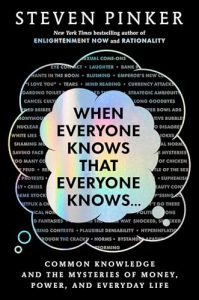
Fundamentally by Nussaibah Younis is one of the most talked-about debuts of 2025, and for good reason. Shortlisted for the Women’s Prize for Fiction, it dares to tackle heavy themes radicalization, humanitarian work, and identity through an unconventional mix of dark humor and satire. But while its ambition is undeniable, readers have found themselves sharply divided over its tone and execution.
The story follows Nadia Amin, a British academic whose career takes an unexpected turn after she publishes an article on deradicalization. Nursing a broken heart and a sense of professional drift, she leaps at a United Nations offer to lead a rehabilitation program for women caught in extremist ideology. Once in Iraq, however, Nadia realizes that her theories are no match for the chaos of reality. Her team is a motley crew the moralizing Sherri, the flamboyant and distracted Pierre, and, most importantly, Sara, a teenage former radical who forces Nadia to confront her own motives.
Younis, herself an expert in Middle Eastern politics, writes from a place of knowledge. Yet readers like Emma note that the novel struggles to balance its sharp humor with the gravity of its themes. She describes the book as “objectively funny and well-written,” but laments that it “never takes itself seriously on these very serious subjects.” Nadia’s work with the imprisoned women, Emma argues, feels superficial, leaving the ending hollow.
Similarly, Ana Paula Moraes found the novel frustrating in its execution. While she acknowledged the strong premise, she criticized Nadia’s characterization as “self-centered and shockingly unprepared,” adding that the inconsistent tone made it hard to know whether the book aimed to be a satire, a critique, or a political drama. The result, she said, was a narrative that “fell completely flat,” despite occasional glimpses of beauty in its portrayal of Iraq and its people.
Ann Dewar offered another perspective, noting that while the author’s credentials make her uniquely positioned to tell this story, the book “tried to be too many things at once.” She found the depictions of aid workers and UN staff exaggerated to the point of implausibility, and the dialogue between Nadia and Sara unconvincing. What could have been a nuanced exploration of international humanitarianism instead becomes, in her view, “a convenient niche for the protagonist to run away to rather than a genuine commitment.”
Despite the divided opinions, there’s no denying that Fundamentally is bold. Younis takes risks thematically, structurally, and tonally that few debut novelists would dare. Her writing is sharp and fearless, and the humor, when it lands, cuts deep. The book’s greatest strength may lie in its willingness to make readers uncomfortable, to question their assumptions about saviorism, feminism, and the messy overlap between personal trauma and political engagement.
Still, Fundamentally is not for everyone. Those expecting a traditional literary novel may find its satire jarring or its protagonist too flawed to root for. But readers drawn to complex, provocative fiction the kind that invites debate rather than easy answers will find plenty to unpack here.
Fundamentally is a daring, uneven, but unforgettable debut. It asks important questions, even if it doesn’t always know how to answer them.


